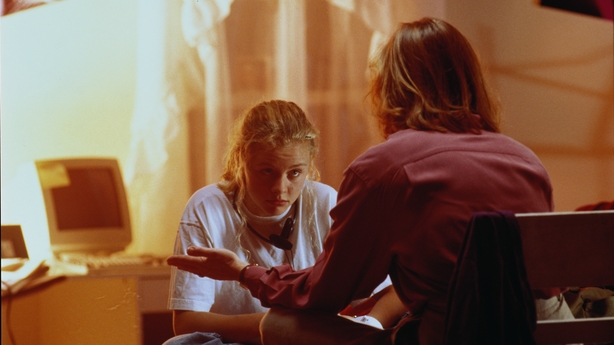Jennifer Zamparelli speaks with Neuroscientist Brian Pennie on RTÉ 2FM to find out how we can deal with people who trigger us. Listen back above.
"It's not just at work and at home, we get triggered in so many areas," Brian told Jen. "Our kids can trigger us. Our kids do trigger us! It's kids, it's friends, it's people in general."
If you find yourself in a situation where someone is constantly leaving you feeling angry or upset, there are two things you can focus on: what you can control and what you can't. Although we can't change other people's behaviours, we can change our reactions.

"Stop pulling the trigger," says Brian. While that may be easier said than done, the neuroscientist insists that ruthless action may be the best way forward in some situations.
"If you have friends who trigger you on an on-going basis and aren't serving you, well, maybe you have to review that," he explains.
Alternatively, you may realise that some people only trigger you in certain contexts or when speaking about certain topics. In this scenario, setting a strict boundary may be the best way forward.
For example, if you have someone in your life who triggers you by bringing up certain subjects every time you go drinking with them, it may be best to only meet that person in sober settings going forward like getting a coffee or going for a walk.

When it comes to being wound up by your kids, things get a bit trickier but Brian insists that boundaries can be made with all age groups.
"We set boundaries with kids all the time. We say 'that is not acceptable, you can't do that, you can't bite your sister'," he laughs.
When it comes to de-escalating a situation, Brian says that using the challenge or 'trigger' as fuel for growth is essential. We can do this, he says, by practicing empathy, non-reactivity, patience, tolerance, and compassion.
"When you stand in someone else's shoes, it's very hard not to be empathetic. All of a sudden you get away from being triggered with anger, and you say maybe they're going through difficult times, and kindness and compassion kick in."

At this point, Brian introduced Jen to the concept of 'anti-fragile' which he says is a way of using adversity as fuel for growth. When we are easily triggered to become angry or upset, he explains, we are in a kind of fragile state. By challenging these feelings, we can grow and cultivate better behaviours to respond with.
A good first step is to sit in a quiet place and visualise a person or situation that triggers you on an ongoing basis. Think about the regular response that you usually have so that you have a mental video of it in your mind's eye. Next, edit that video with your optimal response and visualise how you would like to react in the future.
Maybe this response includes taking three deep breaths, maybe it's practicing empathy, or maybe it's setting a firm boundary. Whatever it is, focus on this new way you want to operate in the world. Rehearse it regularly and you'll find it easier to implement in real time.
For more tips, listen back to Jen's chat with Brian Pennie above.

